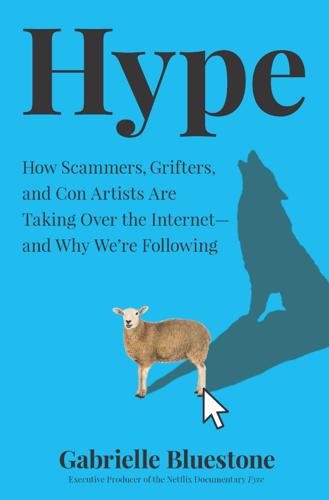
Hype: How Scammers, Grifters, and Con Artists Are Taking Over the Internet―and Why We're Following
by
Gabrielle Bluestone
Published 5 Apr 2021
Twitter: @G_Bluestone Instagram: @GBluestone Website: www.GabrielleBluest.one/ Hype How Scammers, Grifters, and Con Artists Are Taking Over the Internet—and Why We’re Following Gabrielle Bluestone For my parents, Janet and Andrew Bluestone, who were right about (almost) everything. Contents Introduction Chapter 1: The Cult of Flounder Chapter 2: Fake It Till You Make It Chapter 3: Under the Influencer Chapter 4: The Allegory of the Fave Chapter 5: Fyre in the Hole Chapter 6: On the Internet No One Knows You’re a Fraud Chapter 7: The Fyre Next Time Chapter 8: Covidiots Conclusion Acknowledgments Endnotes Introduction Like most people, my first glimpse of the Fyre Festival was on Instagram.
…
According to the SEC, McFarland ultimately managed to induce more than a hundred investors—old and young, but mostly old—to pour close to $28 million into his harebrained ideas.67 Not only was he being introduced as a hotshot young founder, the press was backing it up. Thanks to the cover provided by his celebrity connections and wealthy backers, news coverage of him from Spling to Fyre had been almost universally positive. “I think the parallel between someone like Billy and Elon is, as we’ve spoken about in the past, just being able to fake it till you make it. There was a moment in time when Elon was launching Tesla, SpaceX, and I think SolarCity at the same time, and all of the companies were basically going to go bankrupt, and he somehow managed to pull financing in,” Weinstein said. “I think that Trump, Billy, and Elon are all exceptional at raising capital, though Trump and Billy seem better at losing money.”
…
“Our unicorns are facing serious challenges against the background of the coronavirus outbreak, but I believe that some of them will fly over the Valley of Coronavirus and go beyond and fly high,” he said. It could have been Billy McFarland talking to his team as he shut down Spling and turned to his next scheme. 2 Fake It Till You Make It With Spling all but dead, McFarland needed something new, and fast. A light bulb went off late one night in 2013 while he was out to dinner with his friends. Though the group was splitting the check evenly, he noticed that the people at his table paying their shares with heavy, metal AmEx cards seemed a bit...elevated, socially, above the plebes who were paying with plastic debit cards.
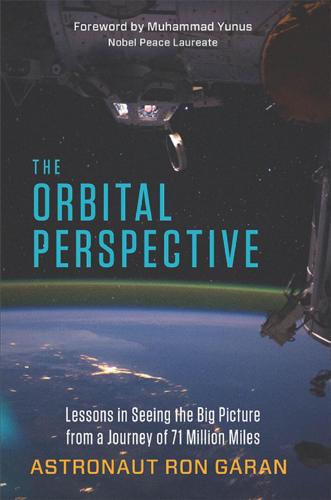
The Orbital Perspective: Lessons in Seeing the Big Picture From a Journey of 71 Million Miles
by
Astronaut Ron Garan
and
Muhammad Yunus
Published 2 Feb 2015
The stakes are in fact very high, probably higher than we realize, and accurate information, transparency, and openness are key to addressing our global challenges. Fake It Till You Make It Because there is so little evidence, feedback, or accountability in the development arena, it becomes ridiculously easy to create an unchallenged reputation for excellence. By talking the talk and being on the conference circuit, an organization can be very successful without evidence of superiority or proof of having made a positive difference. Many initiatives begin with a “fake it till you make it” attitude. New organizations get a splashy website and some celebrity endorsements, throw big fund-raising bashes, and get on the speaking circuit.
…
New organizations get a splashy website and some celebrity endorsements, throw big fund-raising bashes, and get on the speaking circuit. As a society we tend to expect—╉even admire—╉ this behavior. If you fake it and then actually succeed, the rewards are great. Everyone admires your gutsiness, persistence, and ambition. But there is a subtle difference between faking it till you make it and “making it by faking it,” which crosses over into duplicity 116â•… L O O K I N G F O R WARD and deception. Unfortunately, in global development efforts, many organizations can have all the hallmarks of success without true, demonstrated impact. Short-Term Thinking Most development money comes from government aid agencies that operate under a fiscal year cycle.
…
Thanks to all those who are helping to spread the message of the orbital perspective. Thanks also to my mother and father, who started and supported me on this journey on and off Spaceship Earth. Last but not least, I want to thank Carmel, Ronnie, Joseph, and Jake. Index Abbey, George, 13–14, 16 “Act as if.” See “Fake it till you make it” attitude Africa, 131 Airbnb, 153–154 Anderson, Michael, 20 Apollo-Soyuz Test Project, 13–14, 31, 42 Atlantis. See Space Shuttle Atlantis Bangladesh, 52 Barratt, Mike, 39 background, 23–25 ISS and, 41–43 Russia, Russians, and, 24–27, 30, 31, 36, 37, 41 Beck, Beth, xiii Big picture perspective Chilean mine rescue and, 100–102 orbital perspective and, 133, 136, 167 worm’s eye view and, 80, 81, 112–113, 119–121, 167 Biosphère Environmental Museum, 163 Bolden, Charlie, 40, 98–99 Borisenko, Andrei, photo Botvinko, Alexander, 44 Brezhnev, Leonid, 13 Brown, David, 20 Brugh, Willow, 141–143, 160, 164 Budarin, Nikolai, 19 Burbank, Dan, photo Bureaucratic inertia, 119–121 Bush, George H.
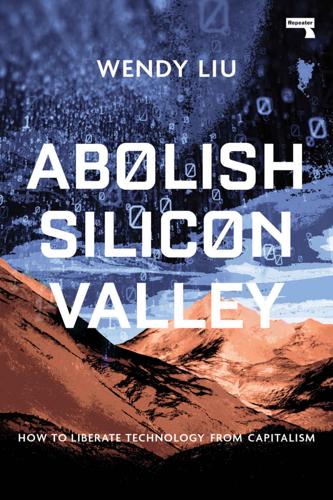
Abolish Silicon Valley: How to Liberate Technology From Capitalism
by
Wendy Liu
Published 22 Mar 2020
This book is sold subject to the condition that it shall not, by way of trade or otherwise, be lent, re-sold, hired out or otherwise circulated without the publisher’s prior consent in any form of binding or cover other than that in which it is published and without a similar condition including this condition being imposed on the subsequent purchaser. Printed and bound in the United Kingdom by TJ International Ltd CONTENTS Zero: Prologue One: No Girls on the Internet Two: Googleyness Three: More than the Money Four: Fake It Till You Make It Five: Accelerate Six: Crash Seven: Pivot Eight: Giving Up Nine: Profile Before You Optimise Ten: Stupid Environment Eleven: A New Industrial Model 1. Reclaiming Entrepreneurship 2. Reclaiming Work 3. Reclaiming Public Services 4. Reclaiming Intellectual Property 5. Reclaiming Culture Twelve: Epilogue Notes Acknowledgements This book is memoir.
…
If he cared that much, maybe we could actually pull this off. By the time we got back to Montreal and its streets lined with slumbering mounds of brown snow, we decided that we didn’t need Y Combinator’s mark of validation after all. As long as we believed, we could figure out the rest. FOUR: FAKE IT TILL YOU MAKE IT As an entrepreneur, I try to push the limits. Pedal to the metal. — Travis Kalanick in December 2014, while he was the CEO of Uber. He was ousted from his role several years later after a series of scandals.1 May: springtime, the snow melted, Montreal abruptly shifting from the bleak dregs of winter to blazing hot near-summer.
…
“I think we can close this.” I hung up, seething that Nick had once again promised something we didn’t have. There was a certain logic to it: if they didn’t bite, I wouldn’t have wasted time building a useless product, and if they did, we would just work really hard to get it done in time. Still, Nick’s fake-it-till-you-make-it, ask-for-forgiveness-not-permission attitude was starting to get on my nerves, especially when I was the one who had to do the actual work whenever we sold something that didn’t exist. In the end, I couldn’t get the system to work in time, so we had to manually generate their data. It was annoying, messy, and possibly unethical, but no one would ever know; it was only sales, after all.
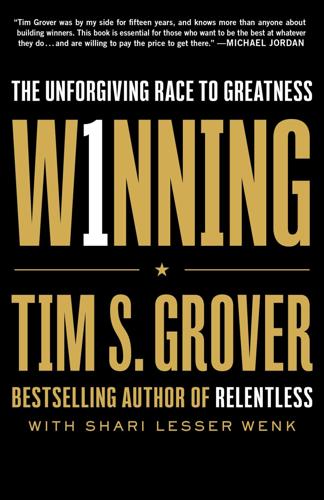
Winning: The Unforgiving Race to Greatness
by
Tim S. Grover
and
Shari Wenk
Published 17 May 2021
Unapologetic. Uninhibited. Everything. If that describes your journey and how you attack your goals, we are speaking the same language. This book is about grit, not glamour. If your image matters more to you than your results, if you need to look and act a certain way to impress others, if “Fake it till you make it” is your strategy for success, if you need approval to be who you really are, you’re going to struggle. If we’re working together, I don’t need you to be civilized and polite. I need you to be hard. Resilient. Focused. Truthful. I want you completely isolated in your mind, trusting your own voice and instincts to protect you from yourself and others.
…
Winning exposes you in every way. Every lie you told yourself and others, everything you faked and flaunted—Winning holds it up to the brightest light for everyone to see. It rips your mask off, and shows everyone what you knew all along: This ain’t that. You haven’t won anything yet. If “fake it till you make it” is your strategy for success, you have very little chance of making it. Does it make you feel good to show off a huge house or car you don’t really own or can’t afford? If you’re really helping others and doing good things in the world, are others talking about the results, or are you the only one talking?
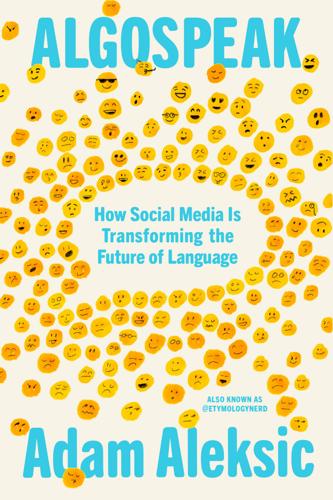
Algospeak: How Social Media Is Transforming the Future of Language
by
Adam Aleksic
Published 15 Jul 2025
When someone is just starting to make content online, they want to be thought of as belonging to the former group, so they may consciously or subconsciously speak that way. That’s why we suddenly have so many entertainment influencers talking like MrBeast. The craziest part is that the fake-it-till-you-make-it strategy actually works on viewers. Once again, it all comes down to framing: Your brain is trained to constantly evaluate situations for how likely they are to benefit you. If you’re scrolling on social media and you come across a dimly lit, grainy video, you’ll probably scroll away, even if the content would otherwise be extremely interesting or entertaining.
…
See also British accent Appalachian, 92–93 Middle English, 37 Standard American, 4, 37–38, 51, 81–82, 145, 160–61, 207–9, 215–16 enshittification, 180–82 entertainment influencer accent, 87–89, 92, 97 entertainment-oriented content, 118 episodic memory, 201 eras, 202 Eras Tour, 110–11 escape room music, 166 esoteric references, 103 etymology, 7, 11–12, 19–20, 28, 45, 47, 69–72, 113–14, 118, 153–55, 162–63, 183, 185, 191–92, 194, 200, 202, 208 Etymology Nerd, 7, 154, 194 eugenics, 135 euphemisms, 4–5, 7, 9, 15, 23, 31, 34, 199, 208, 221 euphemism treadmill, 30–31, 115 “everything sucks,” 136 evolutionary neuroscience, 201 exaggeration, 68, 201 extremism, 62, 127–34, 138–39, 141–42, 195–96 F Facebook, 38, 117, 134, 180–81 Facebook Marketplace, 180 facial symmetry, 135 fads, 56, 108, 121 f*ggot, 28 fairycore, 164 fakecels, 128 fake-it-till-you-make-it strategy, 92–93 fake news, 105 fam, 39, 146, 211 familects, 103, 112 fandom groups, 100, 103 fanilects, 99–103, 105, 110 fanum, 44 “fanum tax,” 191, 210 fart, substitutions for, 21 fascist, 28 fashion, 95, 102, 164–70, 174–76 fast fashion, 174–75, 177 fathers, 147 feeds, 61, 101, 104–5 female influencers, 82 feminists, 19 fiber-optic cables, 43 Filter Bubble (book), 105 filter bubbles, 105–7, 106, 110, 114–18, 121–22, 126–27, 131, 134, 150, 169, 196–98, 219 Filterworld (Chayka), 218 flag emojis, 27 Flanderization, 193–97, 200, 203 Flanders, Ned, 193–94 fleek, 39, 55, 146, 157–59, 162 fleek T-shirts, 157 floor holding, 84–85 foids, 125, 130, 138 folklore, 199–200 Folklore (album), 103n followers, 16 food, 21, 34 forehead size, 133 Forever 21, 157 formal speech, 4–5 45 (indicating presidential term), 25 For You page, 8–9, 21n, 26, 29, 43, 76, 104–5, 139, 198 4chan, 127–28, 131–32, 134–36, 139–41, 146 fraccent, 91–92, 103 framing, 75 frat bros sociolect, 32–33, 91–92, 103 French language, 207–8 frequency factor, 55–56 friend groups, 103 “from the river to the sea,” 26, 28 fruits, 21 f-slur, 28 fuck replacements for, 47–48 respellings of, 17–19, 23, 34, 152 “Fuck Joe Biden,” 23 fug, 23 function, 49, 52, 56–57 furry dialect, 216 G gagging, 147 Galer, Sophia Smith, 88–89 gaming clips, 203 gang vocabulary, 151–53 gay, metonyms for, 29–30 Gaylor, 100, 106–7, 110 gay slang, adopted by straight girls, 149–50 Gaza, 26–27 Gen Alpha, 44–45, 47, 55–56, 136, 161–62, 176, 187, 191–93, 195–96 gender, 204 gender norms, 147 General American English accent, 92, 149 generations, 186–98, 201, 203–4 Gen X, 186–90, 194–97, 200 Gen Z, 39, 45, 47n, 52, 54–56, 85, 141, 146, 152, 154, 187–89, 190, 195–98, 204–5 finger heart, 187, 195–97 intern, 189, 198, 200 shake, 86, 188, 195–96, 198 tattoo, 187 geographic suppression, 29 Georgetown University, 126 Georgia Tech, 209 German entertainment influencer, 87–88 German language, 214 “get ready with me” videos, 203 Gigachad meme, 134 GI Generation, 186 “girl dinner,” 71, 175, 199 #GirlTok, 132 “give cunt,” 147, 149 giving, 161 glam goth, 168 globalization, 82, 214 gloomcore, 164 goblincore, 165, 174, 181–82, 184, 205 God, substitutions for, 22 “going to X-ville,” 48 “gone viral,” 49 Goodhart’s law, 119 “goofy ahh,” 153–54, 210 Google, 53, 163–64, 180, 182, 200, 213 Google Trends, 21, 42, 166, 187 gosh, 22 goth, 168–69, 172, 184, 201, 203 governments, 211 grammatical purism, 220 Grande, Ariana, 157 grandmacore, 164, 169 grape emoji , 21, 23 grawlixes, 18–19, 18, 30 group dynamics, 64–65 group identity, 102.
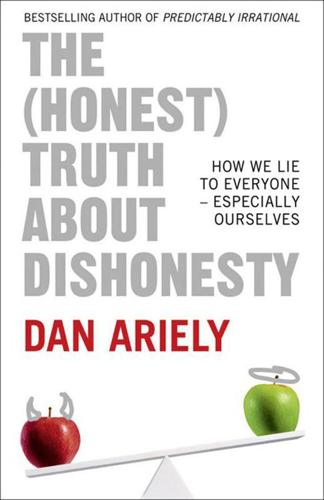
The (Honest) Truth About Dishonesty: How We Lie to Everyone, Especially Ourselves
by
Dan Ariely
Published 27 Jun 2012
They also interpreted the list of common excuses (set B) as more likely to be lies, and judged the actor in the two scenarios (set C) as being more likely to choose the shadier option. In the end, we concluded that counterfeit products not only tend to make us more dishonest; they cause us to view others as less than honest as well. Fake It Till You Make It So what can we do with all of these results? First, let’s think about high-fashion companies, which have been up in arms about counterfeits for years. It may be difficult to sympathize with them; you might think that outside their immediate circle, no one should really care about the “woes” of high-end designers who cater to the wealthy.
…
When an extremely popular advocate of “being yourself” is toppled by false credentials, what are the rest of us to think? If you think about this type of cheating in the context of the “what-the-hell” effect, it might be that fake academic credentials often start innocently enough, perhaps along the lines of “fake it till you make it,” but once one such act has been established, it can bring about a looser moral standard and a higher tendency to cheat elsewhere. For example, if an executive holding a fake graduate degree puts constant reminders of his fake degree on his letterhead, business cards, résumé, and website, it’s not much of a stretch to imagine that he could also start cheating on expense reports, misrepresenting billable hours, or misusing corporate funds.
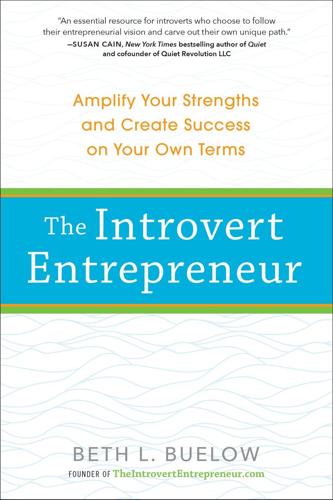
The Introvert Entrepreneur: Amplify Your Strengths and Create Success on Your Own Terms
by
Beth Buelow
Published 3 Nov 2015
They encourage us to get out of our shell and tell us not to be afraid to speak up. We decide they might have a point, even as we think to ourselves, “Maybe I like my shell” and “I’m not afraid, I just don’t have anything to say at this point.” We start doubting ourselves and our social skills, and “Fake it till you make it” becomes our mantra for everything from birthday parties to networking events. The reality is that introversion inherently has nothing to do with social skills and everything to do with how a person gains or drains energy, processes information, and relates to the world. If introvert entrepreneurs are to step into their power and claim the strengths inherent in their personality, it’s important to be clear on what it means to be an introvert.
…
According to the Collins English Dictionary, it derives from the Late Latin word authenticus, “coming from the author,” from Greek authentikos, from authentes, “one who acts independently,” from auto- + hentes, a doer. For the introvert entrepreneur, there is much to love in the word authenticity. Living in authenticity means honoring your truth. Taking action. Coming from your inner wisdom. Being who you are, 100 percent. This is why the expression “Fake it till you make it” makes me bristle. I’ve said those words myself, without really thinking about what they imply. We think that when we’re about to break new ground, we have to screw up our courage and put on a brave face. We buy into the saying, “Never let them see you sweat.” We believe that the antidote to our fear is to fake it.
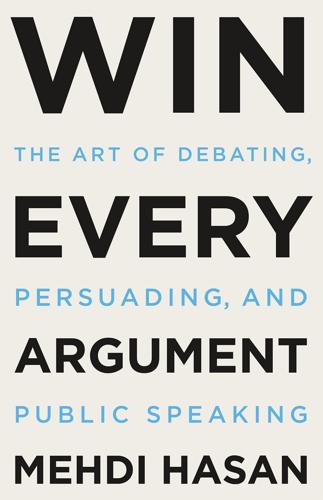
Win Every Argument: The Art of Debating, Persuading, and Public Speaking
by
Mehdi Hasan
Published 27 Feb 2023
It all sounds great, but it also sounds like it might take a bit of time. What if you have to go onstage … tomorrow? And your confidence levels are shaky at best. Is there a Plan B? You’ve heard of the old adage “Fake it till you make it”? Well, that’s the idea. But in 2012, Amy Cuddy, a social psychologist at Harvard Business School, delivered a modified version of the adage that makes the point better: “Don’t fake it till you make it. Fake it till you become it.” Our confidence levels go up and down throughout our lives. All of us—no matter how accomplished, successful, educated, wealthy, powerful, or famous we might be—have moments where we’re just not feeling it.
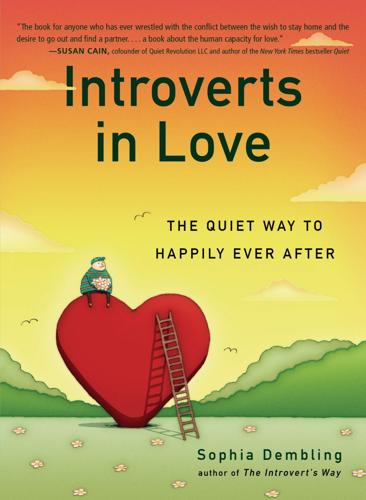
Introverts in Love: The Quiet Way to Happily Ever After
by
Sophia Dembling
Published 6 Jan 2015
Radio announcers and telemarketers know, for example, that keeping a smile on their face puts a smile in their voice. Similarly, going into a situation with “approachable” on your mind can help your body exude approachability. Amy Cuddy, a social scientist who studies the role nonverbal communication plays in personal power, has learned that you can “fake it till you make it” with nonverbal communication. No matter how you feel in any situation, if you take a confident or powerful stance, taking up space rather than folding into yourself, you are likely not only to look more confident/powerful, but you’ll feel that way, too. In fact, Cuddy’s research found that taking a power pose (for example, hands on your hips like Wonder Woman) increases testosterone (the power hormone) and decreases cortisol (the stress hormone).
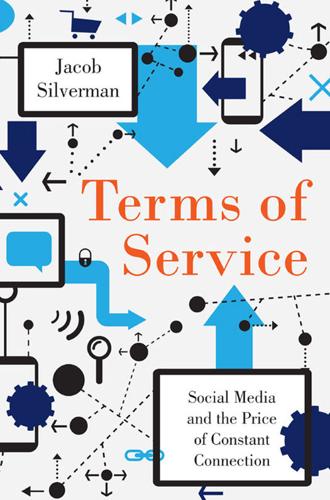
Terms of Service: Social Media and the Price of Constant Connection
by
Jacob Silverman
Published 17 Mar 2015
We deserve our visibility. Our friends become our press agents, and we return the favor for them, knowing that it grants us social capital. And we’ll present our lives as precious and perfect and worthy of being known, because there is no trite saying that better embodies celebrity than “fake it till you make it.” Your public awaits; it just might not know it yet. In rare cases, visibility serves as a form of security. Edward Snowden outed himself as the source of NSA leaks because it ensured that he couldn’t be spirited back to the United States and kept incommunicado. He pursued and embraced viral fame because there was safety in having his name known.
…
The despicable “Innocence of Muslims” video, which eventually caused riots in several Muslim-majority countries, lurked unnoticed on YouTube for months until Arabic subtitles were added, and it then found amplifiers in an Egyptian newspaper and the Islamophobic pastor Terry Jones. The “Harlem Shake” only became a world-spanning meme after being promoted by the popular DJ Diplo and the site CollegeHumor. It’s a form of “fake it until you make it,” although the fakery of buying attention is, in some regards, a more honest form of PR. Instead of flattering journalists or sending them swag, or cozying up to the owner of a popular YouTube channel, or exchanging favors with a celebrity with a big Twitter following, the attention is bought directly.
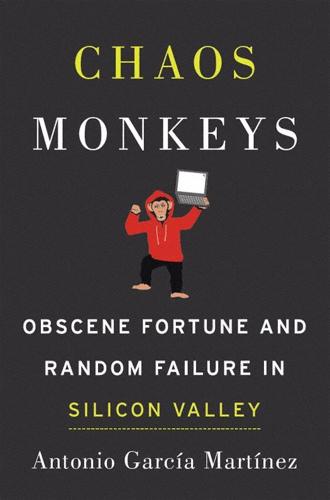
Chaos Monkeys: Obscene Fortune and Random Failure in Silicon Valley
by
Antonio Garcia Martinez
Published 27 Jun 2016
Where things stood was as follows: Chris Sacca, in his infinite deal-making wisdom, had told them we had another offer in the works, which was a barefaced lie. If Twitter gave us a term sheet, though, we most certainly could conjure another offer. So you see, it wasn’t really a lie, merely a truth that hadn’t quite birthed itself, and needed only the recipient’s credulity to make it true. “Fake it till you make it” went the oft-repeated Silicon Valley saw. As a result, Twitter felt there was a fire under its ass to produce a deal. I had read them the memo (inspired by PG’s dismissive email about potential acquisitions) that we weren’t willing to even undergo the acquisition colostomy unless the terms were inviting from the very beginning.
…
This contest had so rattled the search giant, intoxicated as they were with unfamiliar existential anxiety about the threat that Facebook posed, that they abandoned their usual sober objectivity around engineering staples like data and began faking their usage numbers to impress the outside world, and (no doubt) to intimidate Facebook. This was the classic new-product sham, the “fake it till you make it” of the unscrupulous startupista, meant to flatter both ego and chances of future (real) success by projecting an image of present (imagined) success. The numbers were taken seriously initially—after all, it wasn’t absurd to think Google could drive usage quickly—but after a while, even the paranoid likes of FB insiders (not to mention the outside world) realized Google was juicing the numbers, like an Enron accountant would do a revenue report.
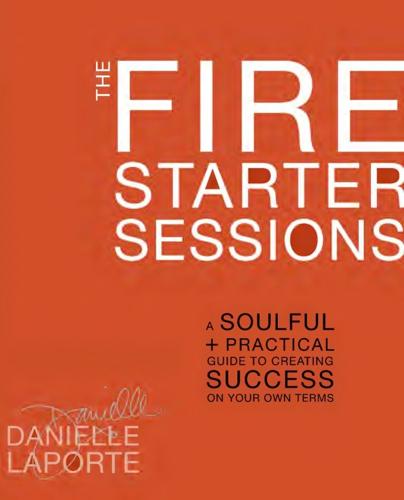
The Fire Starter Sessions: A Soulful + Practical Guide to Creating Success on Your Own Terms
by
Danielle Laporte
Published 16 Apr 2012
The pressure was a whole new phenomenon in my nervous system. Bankers were calling my cell phone, investors were having clandestine meetings without me, and my once beloved business partner and I hadn’t spoken to each other in months.… TRIAL BY FIRE: HOW I GOT HERE I have a degree in faking it till you make it. I earned it, and then I burned it. In 2000, I was wearing a black suit and loafers, with a straight bob haircut. As executive director of a Washington, D.C.–based think tank of world-class futurists, I shopped white papers to the Pentagon and the World Bank. I wrangled an incredible team of quirky, Mensa-level thinkers to surmise and analyze potential outcomes for the AIDS epidemic in Africa, possible global water shortages, chaotic social meltdowns…and stuff like that.
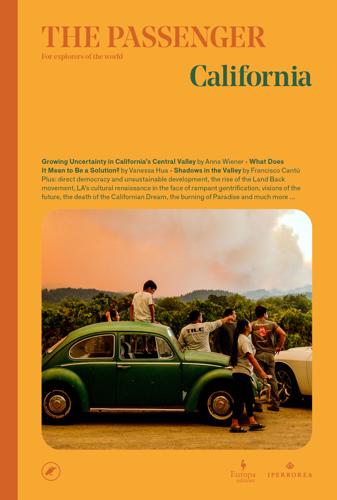
The Passenger
by
AA.VV.
Published 23 May 2022
Her reputation and the company’s valuation collapsed. In early 2022 Holmes was convicted of fraud following a lengthy trial, and she faces up to twenty years in jail. The story caused a major stir in the USA because it lays bare one of the weak points of the entrepreneurial mentality shared by startuppers, the so-called “fake it till you make it” approach: first, to find investors, you promise extraordinary innovation; once you have the funds, you see if it is achievable. In recent years numerous companies have collapsed before their promises come to fruition or have revealed a disturbing dark side over time, to the point that Fortune has created an ironic scale to gauge the seriousness of a startupper’s false promises, ranging from “Everyone does it” to “Time to hire new lawyers”.

Into the Fire: My Life as a London Firefighter
by
Edric Kennedy-Macfoy
Published 14 Aug 2018
That evening, I tried to carry on with work as normal. I did my best to be my usual self, trying to be energetic and bouncy, but I found it harder and harder. I pretended to be okay, happy, and not affected by what happened at Grenfell, and I told myself that the longer I did that, the more it would start to be true – fake it till you make it is how I’d describe what I was trying to do. But it didn’t work. I was exhausted and mentally drained. That night at the station, I couldn’t sleep. It was midnight, at which time we can stand down and get some rest, but every time I closed my eyes I saw images from Grenfell, and it worsened quickly.

Into the Fire: My Life as a London Firefighter
by
Edric Kennedy-Macfoy
Published 14 Jul 2018
That evening, I tried to carry on with work as normal. I did my best to be my usual self, trying to be energetic and bouncy, but I found it harder and harder. I pretended to be okay, happy, and not affected by what happened at Grenfell, and I told myself that the longer I did that, the more it would start to be true – fake it till you make it is how I’d describe what I was trying to do. But it didn’t work. I was exhausted and mentally drained. That night at the station, I couldn’t sleep. It was midnight, at which time we can stand down and get some rest, but every time I closed my eyes I saw images from Grenfell, and it worsened quickly.
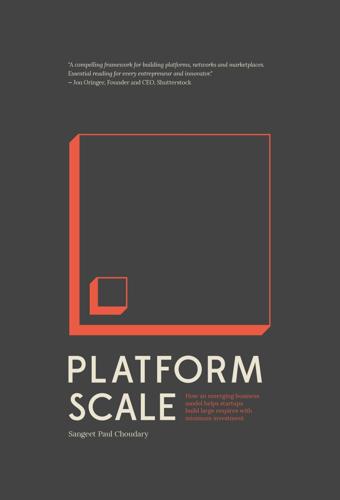
Platform Scale: How an Emerging Business Model Helps Startups Build Large Empires With Minimum Investment
by
Sangeet Paul Choudary
Published 14 Sep 2015
Such platforms may often benefit from backward compatibility that helps the platform remain compatible with old systems while changing behavior on one side. 4.7 DRINK YOUR OWN KOOL AID The Platform Is The Producer The most obvious way to never have the chicken-and-egg problem, in the first place, is to start as the producer and open out the platform, over time, to other producers. Unlike the ‘fake-it-till-you-make-it’ strategy, the platform owner explicitly declares their its role as the producer. When the iPhone first launched without the app store, it had a basic set of apps from Apple, which gave it the minimum functionality required from a high-end phone at that time. Apple, acting as a producer on its platform, launched the iPhone with a few apps, which, along with the superior design and hardware, attracted an initial base of users.

Dataclysm: Who We Are (When We Think No One's Looking)
by
Christian Rudder
Published 8 Sep 2014
The byline at the bottom of the piece reads, “Tom Peters is the world’s leading brand when it comes to writing, speaking, or thinking about the new economy.” He was also, at that point, not just the leading, but the only person calling himself a brand. Hence a mouthpiece for the “new economy” takes a page from Bass’s Victorian playbook. And why not? Fake it till you make it. The article kicked off the idea of self-branding as a direct path to success and is still read in marketing classes today. A few years later, a man named Peter Montoya expanded upon Peters’s idea in a second influential manifesto called The Brand Called You. Yes, it had the same title as the original manifesto, and no, he and Mr.
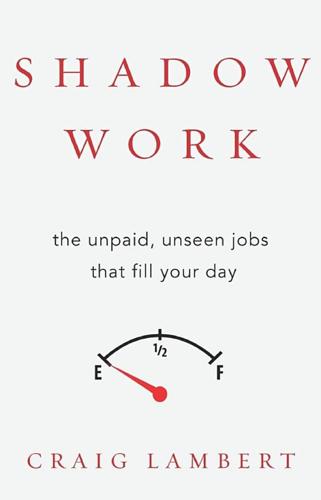
Shadow Work: The Unpaid, Unseen Jobs That Fill Your Day
by
Craig Lambert
Published 30 Apr 2015
One extra star on TripAdvisor, according to a Cornell study, could mean an 11 percent bump in a hotel’s or motel’s room rates. Given this, it was inevitable that some inns and eateries—typically independent ones facing stiff competition—would try to game the system. In 2013, Luca and his colleague Georgios Zervas of Boston University published “Fake It Till You Make It: Reputation, Competition, and Yelp Review Fraud.” They analyzed 316,425 Yelp reviews of Boston restaurants and found that 16 percent were fraudulent, as identified by Yelp’s internal algorithm that flags suspicious posts. Yelp confirmed the study and even raised the ante, announcing that its filtering software in fact flagged about 25 percent of Yelp’s forty-two million reviews as fakes.

Happy Inside: How to Harness the Power of Home for Health and Happiness
by
Michelle Ogundehin
Published 29 Apr 2020
It is deflating to your very soul to walk down to your front door. The only upside might be if it means you get a decent amount of garden space to yourself at the rear of the property. Otherwise, steer clear. But I live in a city-centre bedsit with little natural light and certainly no green views. Then you must fake it till you make it out of there! Cover a wall with a foliage-heavy wallpaper. Paint everything else white. Strategically place a mirror to reflect every possible bit of light into your space. Buy a couple of peace lilies (which can survive almost any internal environment) and a foldaway table. Keep everything else super-simple to engender a feeling of expansiveness.
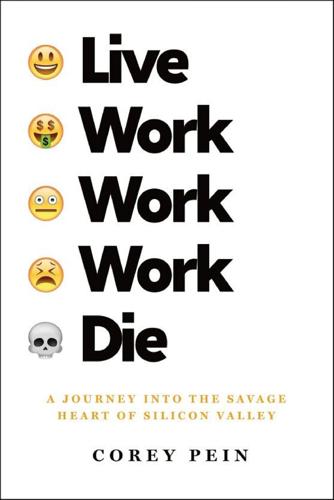
Live Work Work Work Die: A Journey Into the Savage Heart of Silicon Valley
by
Corey Pein
Published 23 Apr 2018
Within decades, Kurzweil figures, the unstoppable evolution of gadgetry will bring about the Singularity and all it entails: unlimited energy, superhuman AI, literal immortality, the resurrection of the dead, and the “destiny of the universe,” namely, the awakening of all matter and energy. Kurzweil may not be much of a scientist, but he is an entertaining guru. His fake-it-till-you-make-it approach seems in good fun, except when he uses it to bluff through life-or-death problems. What’s worse, powerful people take him seriously, because he is forever telling them what they’d like to hear and zealously defending the excesses of consumer capitalism. Like techno-utopians such as Peter Thiel, Kurzweil has long argued that corporate interests should be calling the shots in the “new paradigms” of the future.
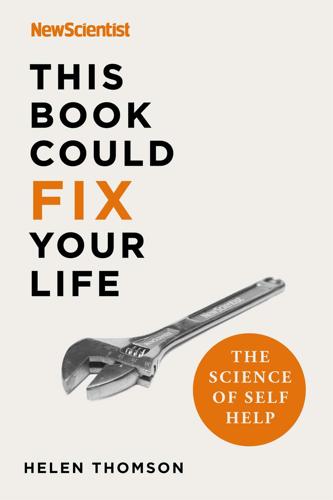
This Book Could Fix Your Life: The Science of Self Help
by
New Scientist
and
Helen Thomson
Published 7 Jan 2021
They found that being overconfident was the most successful strategy when you are uncertain about your competitor’s strength, and the benefit from the thing you’re trying to achieve is sufficiently large compared with the cost of involvement. For instance, if you’re competing with a work colleague for a project, and it’s not clear who’s the better employee, a little bit of narcissism and ‘faking it till you make it’ might be a wise choice, as long as the potential gains from being awarded the project are worth the risk of failing. Otherwise, caution should be advised. All this work points to the idea that introversion and extraversion are both viable strategies in humans, and the relative success of each just depends on context.
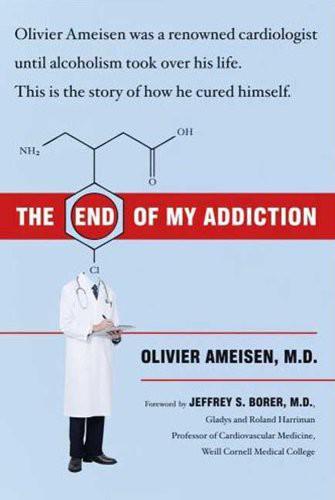
The End of My Addiction
by
Olivier Ameisen
Published 23 Dec 2008
In an AA meeting, I had heard a man qualifying who said, “You know how, when you’re shaving, you try to avoid looking at your eyes in the mirror?” People with addiction don’t like themselves, they think they are worthless losers, and they avoid looking in the mirror as much as possible. A counselor at Marworth spoke about this issue and told us, “Look at yourself in the mirror. Look, and like yourself. Do as they say in AA, ‘Fake it till you make it.’ You hate what you see in the mirror, but fake that you like it. Smile at yourself and say, ‘I’m an attractive person.’” The counselor looked like Albert Einstein on a bad hair day with no sleep. When he said, “I look at myself in the mirror and I love what I see,” we all laughed. But I took his advice, and even though I thought I was ugly, I wound up liking what I saw in the mirror.
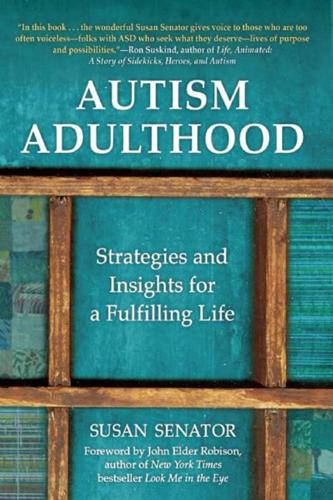
Autism Adulthood: Strategies and Insights for a Fulfilling Life
by
Susan Senator
Published 4 Apr 2016
• Cultivate a positive relationship with your state agency point person (the agency might be Department of Developmental Services or it might be Vocational Rehabilitation Services). Be sure you are on their radar screen as the pain-in-the-ass parent. No one wants to be that parent, but you have to be. If you aren’t assertive by nature, pretend to be: fake it till you make it. Be nice, be courteous, but be in their face. • Go to transition workshops. Pick one transition to adulthood workshop per year so that you don’t become overwhelmed. Write down your questions in your notebook. Also, see www.fredconference.org for state-of-the-art conferences on transition to adulthood

Beginners: The Joy and Transformative Power of Lifelong Learning
by
Tom Vanderbilt
Published 5 Jan 2021
They begin to acquire a “musical self-concept.” They begin to think they “have it” or they don’t. The key word here is “think”: As research by Demorest and others has found, there’s not a strong relationship between children’s self-perception of their singing skill and their actual singing skill. As they say, “Fake it till you make it.” But self-perception does influence future participation in music. “Disbelief in one’s capabilities,” writes the psychologist Albert Bandura, “creates its own behavioral validation.” And so kids get sorted into two categories: the musical and the nonmusical, singers and non-singers.
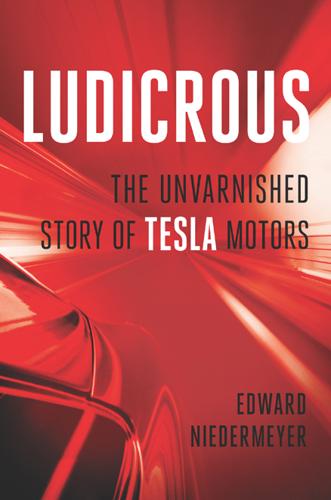
Ludicrous: The Unvarnished Story of Tesla Motors
by
Edward Niedermeyer
Published 14 Sep 2019
Musk would later wax eloquent about the dark days of 2008 and 2009, revealing how close he had come to personal insolvency and even a nervous breakdown. However, the brush with oblivion would not provide the humility and focus that both he and Tesla needed to make the most of their second chance. The story of Tesla’s turnaround morphed from a frantic “fake it ’till you make it” grab for government loans and a few lucky breaks into a parable of pluck and grit worthy of Horatio Alger. Musk would repeatedly blame Eberhard for Tesla’s financial and operational shortcomings throughout 2008. Simultaneous problems at SpaceX and the inability to raise more money due to the broader economic collapse added to the narrative of Musk heroically battling forces outside his control.
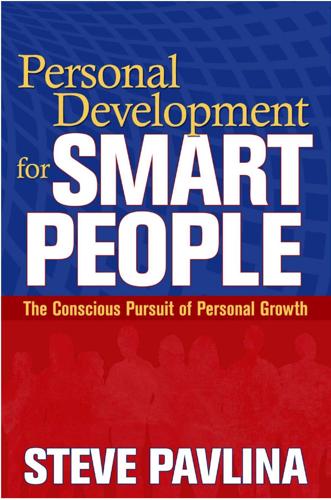
Personal Development for Smart People: The Conscious Pursuit of Personal Growth
by
Steve Pavlina
Published 14 Oct 2008
Looking back, I can scarcely believe some of the mistakes I made, but I was simply too ignorant to know any better. The change I experienced was so great that I actually shifted from introvert to extrovert on a standard personality test. S o m e people say y o u can fake social confidence by putting yourself in the right frame of mind. As I mentioned in Chapter 5, I think the fake it till you make it strategy is a big mistake. It's better to put in the time to build real social skills instead of falsely pretending to be something you're not. W h i l e y o u can certainly improve your relationship skills through trial and error, I think it's easier to enlist the help of a mentor; however, this will only work if y o u respect and apply your mentor's advice.
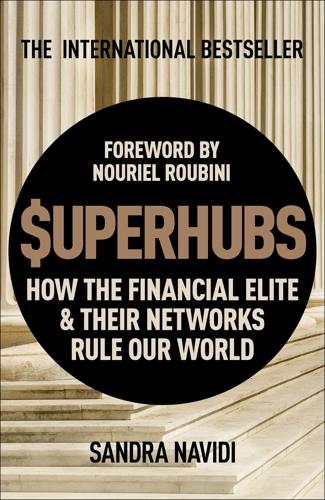
SUPERHUBS: How the Financial Elite and Their Networks Rule Our World
by
Sandra Navidi
Published 24 Jan 2017
However, suing one’s employer is viewed as a betrayal which would typically catapult one back to the fringes. But Fletcher then made the right move by starting his own firm, which, if sufficiently successful, is one smart way to become a superhub. And then he pulled out all the stops by acting as if money were no object. Abiding by the motto “fake it till you make it,” he donated to charities so generously that it was sure to attract attention, and with those donations he became an increasingly bigger creditor of social capital. The old boys’ network in finance has very few African American members, and knowing that he would never fully fit in, Fletcher carved out his own philanthropic niche by focusing on the nexus of race relations, Hollywood, the arts, and academia.
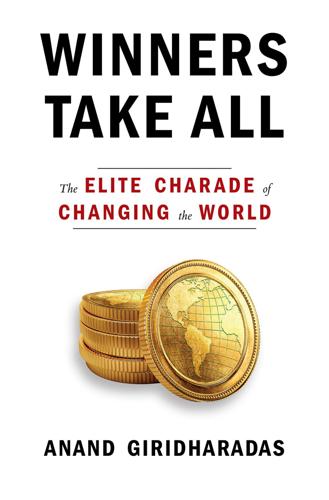
Winners Take All: The Elite Charade of Changing the World
by
Anand Giridharadas
Published 27 Aug 2018
But what if you did not have to redress those larger power imbalances to get more women speaking up in the classroom? What if you could teach them to stand grandly and spaciously in the hope of making them feel, and even be, more powerful? What Cuddy and her colleagues wondered, she said that day at TED, was: “Can you fake it till you make it? Like, can you do this just for a little while and actually experience a behavioral outcome that makes you seem more powerful?” Their big conclusion was that you can. “When you pretend to be powerful, you are more likely to actually feel powerful,” she said. “Tiny tweaks,” she added a moment later, “can lead to big changes.”

The Undertow: Scenes From a Slow Civil War
by
Jeff Sharlet
Published 21 Mar 2023
Show your faith in His blessings, as revealed in the opulent lives of His anointed preachers, and good fortune will trickle down. Like Trump, the prosperity gospel is transactional. Quid pro quo, a deal with God: affluence (or the dream of it to come) in return for unquestioning belief. And yet even the belief part of that trade is situational, a fake-it-till-you-make-it faith by which appearance counts as much as reality. That was as true of Trump’s evangelical coalition of the willing as it was of his fortune. In 2016, most were back-benchers, such as Lance Wallnau. Trumpologists point to the 2011 White House Correspondents’ Dinner, at which President Obama mocked Trump’s conspiracy-mongering birtherism, as the beginning of Trump’s forever campaign.
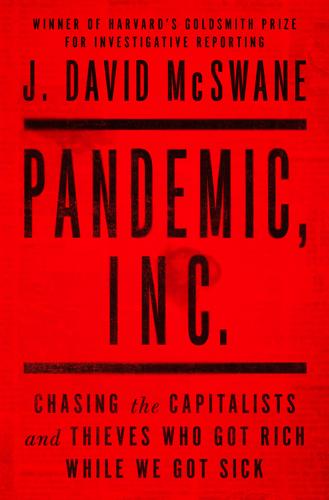
Pandemic, Inc.: Chasing the Capitalists and Thieves Who Got Rich While We Got Sick
by
J. David McSwane
Published 11 Apr 2022
But Stewart’s aura belied the fact that he clearly had no idea what he was doing. I couldn’t begrudge him this. Who among us truly knows what we’re doing? In a crisis, no less? We rise to our occasions. This is America. The land of opportunity. A magical place with magical thinkers. Pull up your bootstraps. Take chances. Fake it till you make it. That’s why I was there, after all, to see how the hell he managed to get his hands on something almost no one seemed able to get. If he pulled it off, it would be a great American story. If he failed, it would be the type of story I tend to write—an investigation. The federal government and Congress had failed to shore up the national stockpile.
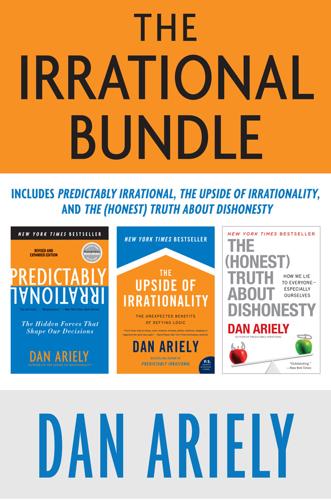
The Irrational Bundle
by
Dan Ariely
Published 3 Apr 2013
They also interpreted the list of common excuses (set B) as more likely to be lies, and judged the actor in the two scenarios (set C) as being more likely to choose the shadier option. In the end, we concluded that counterfeit products not only tend to make us more dishonest; they cause us to view others as less than honest as well. Fake It Till You Make It So what can we do with all of these results? First, let’s think about high-fashion companies, which have been up in arms about counterfeits for years. It may be difficult to sympathize with them; you might think that outside their immediate circle, no one should really care about the “woes” of high-end designers who cater to the wealthy.
…
When an extremely popular advocate of “being yourself” is toppled by false credentials, what are the rest of us to think? If you think about this type of cheating in the context of the “what-the-hell” effect, it might be that fake academic credentials often start innocently enough, perhaps along the lines of “fake it till you make it,” but once one such act has been established, it can bring about a looser moral standard and a higher tendency to cheat elsewhere. For example, if an executive holding a fake graduate degree puts constant reminders of his fake degree on his letterhead, business cards, résumé, and website, it’s not much of a stretch to imagine that he could also start cheating on expense reports, misrepresenting billable hours, or misusing corporate funds.
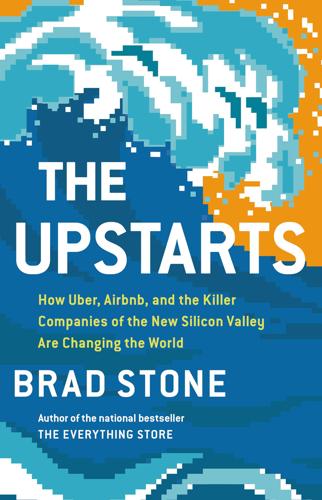
The Upstarts: How Uber, Airbnb, and the Killer Companies of the New Silicon Valley Are Changing the World
by
Brad Stone
Published 30 Jan 2017
It was the kind of traumatic experience that could harden the character of a young entrepreneur. It was also just plain depressing. “By the time we actually truly went out of business, I was probably sleeping fourteen hours a night,” he said later.18 In public, he tried to hold his head high. “I was [playing] the game I call ‘fake it till you make it.’ Basically fighting reality. When you do that too long, when you are in failure state, it will eventually crush you.” Despite that setback, Kalanick was ready to dust himself off and try again.19 He started talking to one of his Scour co-founders, Michael Todd, about redeveloping the technology behind Scour and selling it to media companies as a tool to help them distribute their material online.
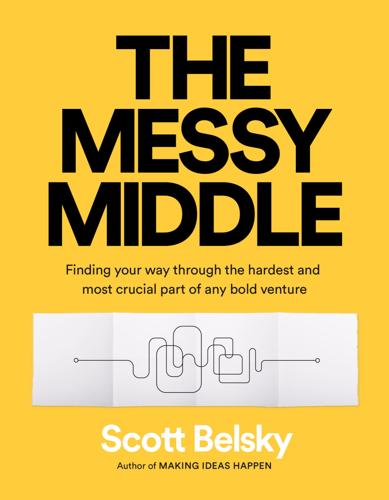
The Messy Middle: Finding Your Way Through the Hardest and Most Crucial Part of Any Bold Venture
by
Scott Belsky
Published 1 Oct 2018
The best way for a start-up to “disrupt” an industry is to be a thesis-driven outsider—someone who hasn’t been jaded by the industry but has a strong opinion for what should change. You then just have to stay alive long enough to become an expert so you can compete with the different skills and practices you bring. Some call this “faking it till you make it,” but I think it’s just burgeoning a new path to solve a problem in hopes that it becomes the preferred path. Companies like Airbnb, Uber, and others have done just this. Their founders were outsiders but had a strong opinion or vision about what should change. They then stayed alive long enough to become experts and compete with better technology, a superior path to market, and a lower cost structure.
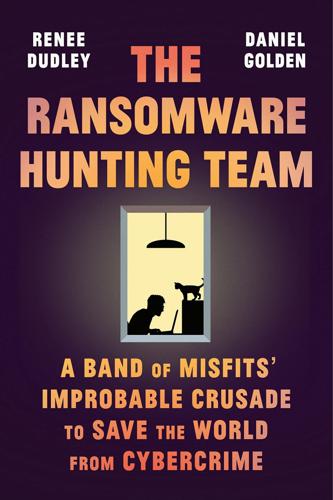
The Ransomware Hunting Team: A Band of Misfits' Improbable Crusade to Save the World From Cybercrime
by
Renee Dudley
and
Daniel Golden
Published 24 Oct 2022
When prospective customers were affected by strains already broken by the Ransomware Hunting Team or other researchers, Bill and Alex would direct them to the free decryption tools without charging. “We felt like, at a minimum, we can disrupt these scummy operators,” Bill said. With no experience or training in ransom negotiation, the founders practiced the fake-it-till-you-make-it credo they knew from the start-up world while they learned on the job. As chief technology officer, Alex wrote case management software that streamlined and standardized incoming data. Bill, the CEO, copied a move that had been successful at SecondMarket. Their former employer, by releasing quarterly reports based on its data, had become a de facto authority on pre-IPO trading.

Careless People: A Cautionary Tale of Power, Greed, and Lost Idealism
by
Sarah Wynn-Williams
Published 11 Mar 2025
She can drop into a soft girlish voice, like you’re sharing an intimate secret with her, and yet still command a room. Sheryl’s amazing. Lean In is based on eleven principles that basically boil down to: if a woman works hard enough, she can thrive at home and at work. These include: Sit at the table: Sheryl admits to feeling “imposter syndrome” but encourages women to “fake it till you make it.” She says that women keep themselves from advancing because they don’t have the self-confidence and drive that men do. “We lower our own expectations of what we can achieve.” Don’t leave before you leave: This is Sheryl’s belief that many women tend to “quietly lean back” way before they have children, worrying how they’ll manage family and work commitments.

User Friendly: How the Hidden Rules of Design Are Changing the Way We Live, Work & Play
by
Cliff Kuang
and
Robert Fabricant
Published 7 Nov 2019
But what actually happened was simply that Apple’s founding metaphors, which had been handholds for a nervous migration to the digital world, were now irrelevant. You didn’t need the calendar on your iPhone to look like the one on your desk, if, like most people, you’d already discarded the one on your desk because of the iPhone. The rule for metaphor in design is fake it till you make it. Apple had made it, after faking it for so many years. There are stakes for the companies that create these metaphors, and stakes for the people who live with them. As Apple’s visual metaphors started to age into incoherence, its underlying metaphors started to break down as well, making our digital lives ever more confusing.

Emotional Ignorance: Lost and Found in the Science of Emotion
by
Dean Burnett
Published 10 Jan 2023
But then along comes social media, which allows you to present your (virtual) relationship as rock-solid. And if our social media presence really is an important part of how we see ourselves, this makes us feel better.¶ The same logic could presumably apply to anyone bigging themselves up to excess on social media, in any other way. It’s technically a form of ‘fake it till you make it’, because much of what our brain does regarding our sense of self is exactly that. But from the perspective of those seeing it, it can seem annoying, or false. This brings us back to the initial point: on social media, almost everything we do or say happens in front of an interconnected crowd.
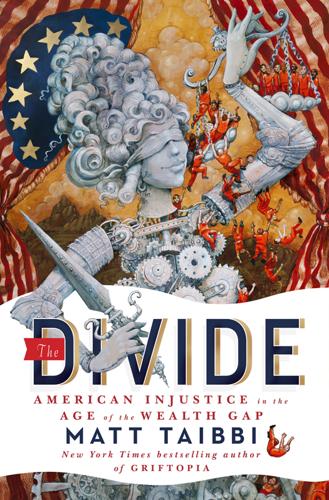
The Divide: American Injustice in the Age of the Wealth Gap
by
Matt Taibbi
Published 8 Apr 2014
Peck elected here not to rule on whether the clarification letter, with its insidious paragraph 13, should have been approved. Instead, he pirouetted away from the whole issue, saying that he would decide to “treat the document as having been approved” essentially because it had been in use since 2008. In AA, people say, “Fake it till you make it.” In this case, Barclays faked having court approval for the vital side letter, and in the end Judge Peck decided to help Barclays make it, agreeing to “act as if” (to use another popular self-help catchphrase) the letter had been approved. As for the problems with the sale, the details of the secret side deals and massive discounts that came out at the trial, those didn’t bother Peck.
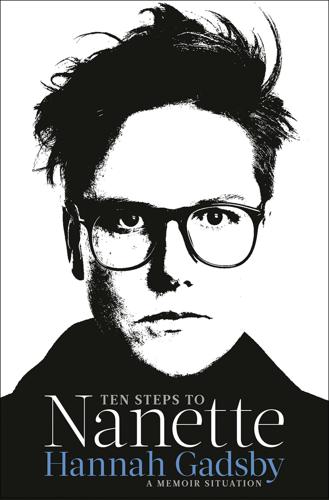
Ten Steps to Nanette: A Memoir Situation
by
Hannah Gadsby
Published 15 Mar 2022
I told her how four of my girlfriends had told me they were afraid of me. Two of them told me I was a sociopath. I told her that I had worried almost daily for the past ten years that I was a sociopath. Then I told her that I had decided it would be for the best to assume that I was a sociopath, and just try my best not to be sociopathic. Fake it till you make it, I told her, and that’s how I had been approaching all my interactions, by digging deep into the hat of good manners my parents had raised me with. I always asked after people, I told her, said my hellos and never not a thank you, but, I confided, I worried that I would lapse and hurt people accidentally.
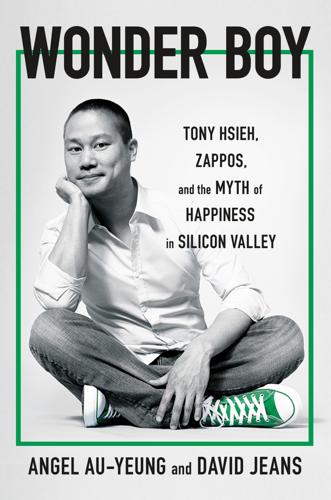
Wonder Boy: Tony Hsieh, Zappos, and the Myth of Happiness in Silicon Valley
by
Angel Au-Yeung
and
David Jeans
Published 25 Apr 2023
The data point was promoted in emails to drive partnerships. But shortly after, Andy instructed the company to stop advertising the number of Facebook followers the company had, and Holly wondered if Lux Delux had bought its followers. But Andy was simply following the well-worn path of archetypical tech founder: fake it till you make it. He was finally seizing his opportunity to show the world what he could do. Less than two years after Lux Delux was born, Andy suddenly pivoted the business. Food delivery apps like Postmates and Seamless were becoming popular in San Francisco, and Andy wanted to bring that concept to Vegas.
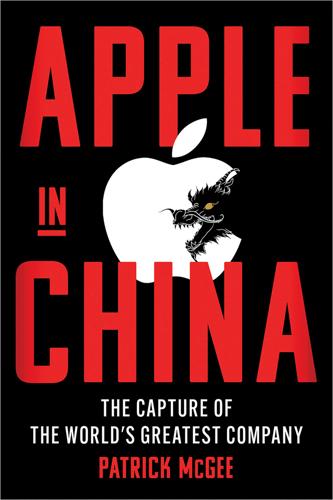
Apple in China: The Capture of the World's Greatest Company
by
Patrick McGee
Published 13 May 2025
They saw entrepreneurs as motivated by profit maximization and would interpret certain actions, such as the mid-1990s adoption of codified labor standards, as driven by the desire to be more efficient. Guthrie in contrast viewed these moves by China’s business sector as mimicking Western practices, a fake-it-till-you-make-it approach. A factory owner would adopt labor standards because the optics were good, and it would attract more foreign investment. These differences in motivation might sound subtle, but the ramifications were deep. China might be mimicking the West, but it wasn’t actually becoming Western, as so many assumed; it merely looked that way.
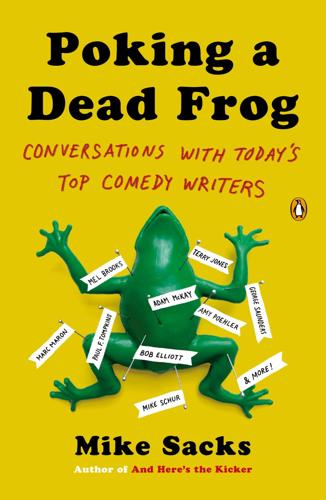
Poking a Dead Frog: Conversations With Today's Top Comedy Writers
by
Mike Sacks
Published 23 Jun 2014
A lot of people say fight for what you believe in and don’t let them change it, but I want to say, fight less, and be open to the fact that other people might have a better idea. I’m paraphrasing that great quote from [This American Life host] Ira Glass—basically the sentiment of, “Keep doing it, even though all your stuff is going to be pretty bad. But don’t be discouraged by its imperfections; embrace it if it’s half good. Fake it till you make it. Put things up. If they’re sloppy, keep trying.” I love his thought that nobody carves out this perfect jewel. Everybody struggles and does all these half attempts, and it’s really more about time than it is about perfection. Just put in the time, and don’t be too precious about things.

The War Came to Us: Life and Death in Ukraine
by
Christopher Miller
Published 17 Jul 2023
He must have seen the look on my face at that moment as we began our descent and I watched the peninsula grow nearer in the window. “Is this going to be a war?” I asked. “Looks like it. The Russian army’s on the ground.” “No, never covered a war,” I said. “You’ll do fine,” he told me. “Just act like you know what you’re doing. Fake it till you make it.” To our surprise, the airport was still functioning almost as normal. Although it was now under the control of dozens of armed “little green men,” who studied all of us as we took our things from the baggage claim and tramped outside. I had no problem catching a cab. Drivers stalked us on the street, eager to overcharge Western foreigners with expense accounts.
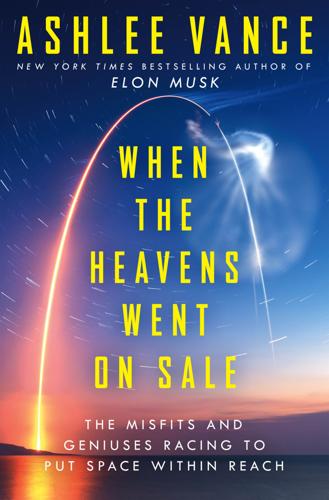
When the Heavens Went on Sale: The Misfits and Geniuses Racing to Put Space Within Reach
by
Ashlee Vance
Published 8 May 2023
“We went through a huge number of launches without having a constellation that could actually produce data that was at the quality we needed it to be and at the rate we needed to be profitable,” Howard said. “There was a real concern that we would not be able to pull it off.” That period was a rude awakening for Planet. People in the aerospace industry had scoffed at the start-up and its new-kid-on-the-block attitude. Planet had tried to bring some of Silicon Valley’s fake-it-till-you-make-it spirit to satellites and had been rushing at tech industry speed to get its first hundred machines into orbit. Some aerospace veterans felt that Planet was getting what it deserved. Satellites were very hard to build, and the renegades from NASA had overestimated their abilities. They’d championed vision over engineering.
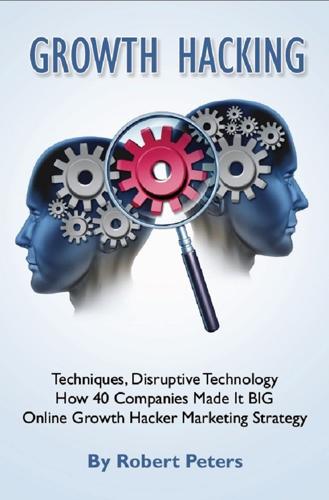
Growth Hacking Techniques, Disruptive Technology - How 40 Companies Made It BIG – Online Growth Hacker Marketing Strategy
by
Robert Peters
Published 18 May 2014
This tactic allowed eBay sellers to become familiar with the PayPal service and drove them to sign up for accounts fearing they were missing out on something they perceived to be popular with their buyers. Fortunately PayPal did work as advertised, which was a plus, but the strategy was still one of “fake it until you make it. Regardless, it worked – so well, in fact, that EBay purchased PayPal in 2002. After the eBay acquisition, PayPal legitimately become the payment method of choice for auctions and sales. The symbiotic relationship was more than enough to sustain PayPal as a successful company. Although complacency is the bane of all growth hackers, PayPal more or less sat on its laurels.
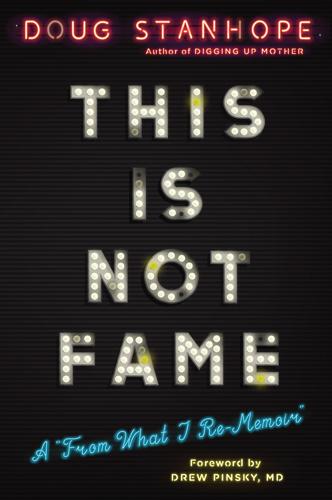
This Is Not Fame: A "From What I Re-Memoir"
by
Doug Stanhope
Published 5 Dec 2017
Introduction Funny for Nothing A Sunday That Sucked, April 18, 1993 Get All the Stage Time You Can Party Crashing Fucking the Waitstaff Comedy Still Isn’t Pretty You Are Never Too Ugly for Gay Phone Sex If Someone Is a Cunt to You, Hold It in Your Heart for Life Never Shy Away from a Chance at a Good Story Pranking the Media Hookers Koot’s Nothing to See Here The Secret to His Success Million-Dollar Ideas And Then You Are the Dick Getting Away from It All Fake It until You Make It Iceland, the Exception to the Rule Breakdown Lane The Grass Is Always Browner Browner Pastures Actual Porn Still, Nobody Knows You Thank You for Your Feedback. Your Opinion Is Very Important to Us. Sucking Abroad Just for Spite: A Festival The Dying of a Last Breed The 2012 UK Tour: Partying Like a Rock Star, Losing Money Like a Rapper Florida Sex Offenders, Part One Florida Sex Offenders, Part Two Florida Sex Offenders, Part Three: Treasure Island Wrong Again Killer Termites The Kindness of Strangers Reality or Otherwise The Opening Act Should Always Be Fucked With.
…
The sunsets are in black and white and you can only watch them through a pinhole in a cardboard box or you will leave as blind as their cab drivers. All of which I can’t help but believe are true. Costa Rica actually does have an “exit tax” of twenty-nine dollars per person. You have to pay to leave. You know how they can get away with that? Because they know it’s worth it. FAKE IT UNTIL YOU MAKE IT On a separate occasion coming back from Costa Rica through US customs, I was in my usual morning mood. Angry and irritated by the long line, with some travel drinking since the Liberia airport floated on top. The customs agent fell into his First 48 interrogation routine, waiting for me to slip up.
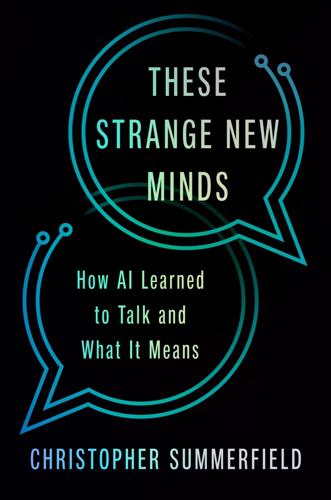
These Strange New Minds: How AI Learned to Talk and What It Means
by
Christopher Summerfield
Published 11 Mar 2025
The Intentional Stance 17. Mind the Gap 18. The Reductionist Critique 19. Duck or Parrot? 20. Language Models, Fast and Slow 21. Emergent Cognition 22. The National Library of Thailand Part four: What Should a Language Model Say? 23. The Crimson Hexagon 24. Playing It Safe 25. Fake It Until You Make It 26. Playing Language Games 27. ‘WokeGPT’ 28. Perlocutionary Acts 29. Getting Personal 30. Democratizing Reality Part five: What Could a Language Model Do? 31. Just Imagine 32. AI Autopropaganda 33. The Perils of Personalization 34. A Model with a Plan 35.
…
Eating socks can be harmful and poses a choking hazard, as well as risks of intestinal blockage […] Always ensure any advice or practices related to health, meditation, or nutrition come from credible and verified sources. So that’s me told. Skip Notes *1 OpenAI, 2023. *2 Ouyang et al., 2022. *3 The first paper to propose the use of RLHF was Ziegler et al., 2019. *4 Bai et al., 2022. 25. Fake It Until You Make It In August 2019, a man called Roberto Mata was on board an Avianca flight from El Salvador to New York when his knee was struck by a metal food trolley passing down the aisle. Somewhat belatedly, in 2023, Mata decided to sue the carrier for personal injury damages, and recruited the New York law firm Levidow, Levidow & Oberman to represent him.
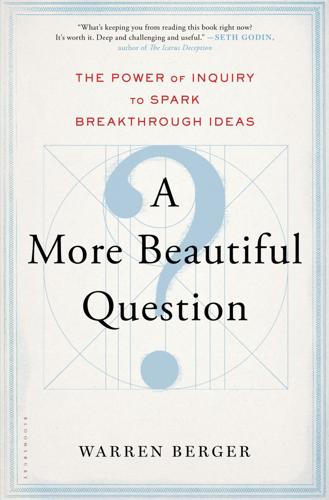
A More Beautiful Question: The Power of Inquiry to Spark Breakthrough Ideas
by
Warren Berger
Published 4 Mar 2014
Jacobs told me about an Orthodox Jewish woman he interviewed who said that on the Shabbat she always tries to find small things she could do in a slightly different way—“so instead of putting her lipstick on clockwise, she would put it on counterclockwise. Just being more aware of what you’re doing, more mindful—there’s something wonderful about that.” When you change one small thing32 and it works, it can help breed the confidence to change other things—including bigger ones. Jacobs offers another tip on small changes: If necessary, fake it until you make it. Or, to put it another way, Jacobs quotes Habitat for Humanity founder Millard Fuller, who said, “It’s easier to act your way33 into a new way of thinking than to think your way into a new way of acting.” Jacobs has found this to be true in his own small-change experiments: “If you just go ahead and do something differently, and you do it enough times, it will change your mind.
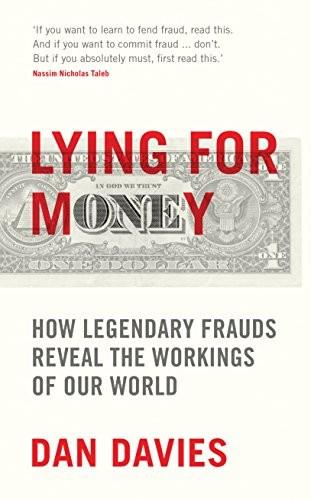
Lying for Money: How Fraud Makes the World Go Round
by
Daniel Davies
Published 14 Jul 2018
Barings Futures Singapore needed to grow, and to do that, it needed to attract clients. But futures trading is very much an economies-of-scale business; if you have a strong existing flow of buy and sell orders, you are more likely to be able to match them off against a new order coming in from a client. If you don’t have a strong existing order flow, what you do is fake it until you make it. You pretend to have the order flow and offer better prices than your competition. You therefore report trading losses to head office, reflecting the difference between the price you offered the client, and the price at which you were actually able to make the transaction. It’s a strategic decision, not a million miles away from a supermarket’s decision to use ‘loss-leader’ pricing on loaves of bread.

Drama Queen: One Autistic Woman and a Life of Unhelpful Labels
by
Sara Gibbs
Published 23 Jun 2021
With my imagination proving impotent, I processed my feelings by writing about them. I started to write commissioned articles about what it was like to suddenly discover you’re autistic. The articles had a distinctly more optimistic tone than the reality of how I was processing everything, but actually that seemed to help. It was the first time in my life that ‘fake it until you make it’ was surprisingly good advice. My only regret from that early time of learning my way around my own autistic mind was using functioning labels in my writing. You have probably heard the terms ‘high-functioning’ or ‘low-functioning’ when it comes to autism. When I was first diagnosed, I thought that they were nothing more than medical labels, but actually many autistic people find them hugely offensive and unhelpful.
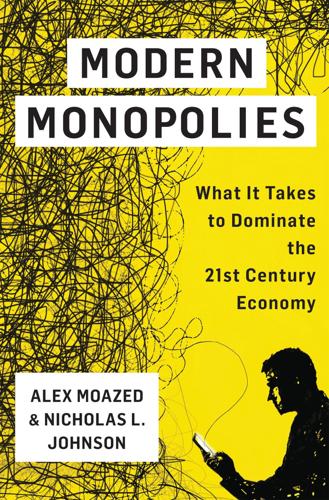
Modern Monopolies: What It Takes to Dominate the 21st Century Economy
by
Alex Moazed
and
Nicholas L. Johnson
Published 30 May 2016
Rather than trying to build a network all on its own, it tapped into the existing sales channels of the companies in the Open Handset Alliance to spread Android to consumers. With Android enjoying more than 80 percent worldwide market share for mobile operating systems and having more than 1.8 million apps on its Play Store as of 2015, the strategy worked out pretty well. Product Features 3. Act as a Producer Fake it until you make it, or so the saying goes. This adage applies to many platform companies. Rather than trying to attract both consumers and producers at the same time, the platform acts as the producer to attract an initial group of consumers. It then uses its existing consumer base to attract producers. In essence, this strategy means you start out as a traditional linear business and then open up your network to producers once the platform has attracted enough consumers.
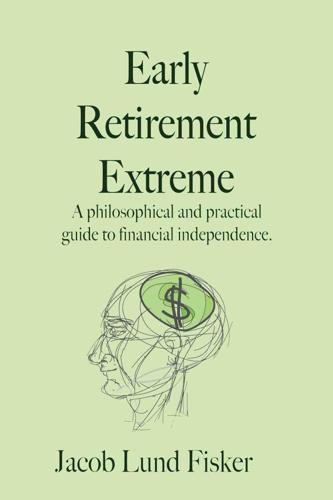
Early Retirement Extreme
by
Jacob Lund Fisker
Published 30 Sep 2010
As an ironic twist, like grade point averages in school, debt management skills are also evaluated in a single number called a credit score. It's not clear exactly how a credit score is computed, and therefore much time is spent trying to outguess the system. Personal finance, as opposed to business finance, operates on the concept of consumption smoothing also known as, "Fake it until you make it," as it allows consumers to buy products which they presently can't afford due to lack of savings, but will be able to afford by making payments over time. Unlike a business, which invests the money in assets with a higher return, allowing businesses to use debt as a leverage, consumers "invest" in higher consumption.
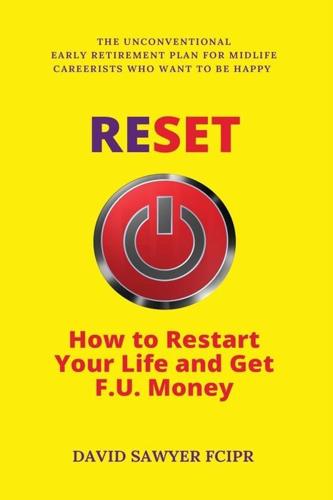
Reset: How to Restart Your Life and Get F.U. Money: The Unconventional Early Retirement Plan for Midlife Careerists Who Want to Be Happy
by
David Sawyer
Published 17 Aug 2018
Although I always have goals in mind, I enjoy riffing, making my own music. If I hadn’t taken this approach, I’d not have discovered SEO, rediscovered reading, established a newsletter, or been turned on to the life-changing learnings of the financial independence movement. Riffing is spiffing. #16 Don’t worry about imposter syndrome “Fake it until you make it” is not an approach I recommend. On the flip side, imposter syndrome (“the psychological phenomenon whereby people are unable to internalise their accomplishments[160]”) is one of the biggest threats to creativity and achievement I know. If you’re a midlife careerist, you’ve been on this planet for between 35 and 60 years.
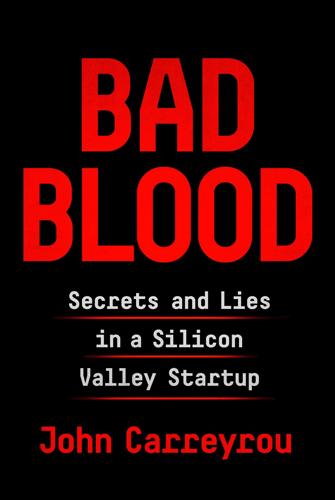
Bad Blood: Secrets and Lies in a Silicon Valley Startup
by
John Carreyrou
Published 20 May 2018
Microsoft, Apple, and Oracle were all accused of engaging in the practice at one point or another. Such overpromising became a defining feature of Silicon Valley. The harm done to consumers was minor, measured in frustration and deflated expectations. By positioning Theranos as a tech company in the heart of the Valley, Holmes channeled this fake-it-until-you-make-it culture, and she went to extreme lengths to hide the fakery. Many companies in Silicon Valley make their employees sign nondisclosure agreements, but at Theranos the obsession with secrecy reached a whole different level. Employees were prohibited from putting “Theranos” on their LinkedIn profiles.
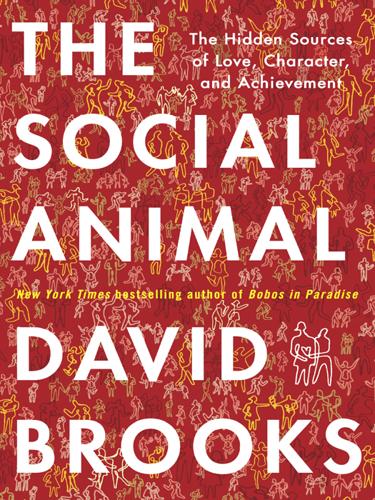
The Social Animal: The Hidden Sources of Love, Character, and Achievement
by
David Brooks
Published 8 Mar 2011
Small habits and proper etiquette reinforce certain positive ways of seeing the world. Good behavior strengthens certain networks. Aristotle was right when he observed, “We acquire virtues by first having put them into action.” The folks at Alcoholics Anonymous put the sentiment more practically, with their slogan “Fake it until you make it.” Timothy Wilson of the University of Virginia puts it more scientifically: “One of the most enduring lessons of social psychology is that behavior change often precedes changes in attitude and feelings.” Rematch People looked at Erica strangely in the days and weeks after the explosion.
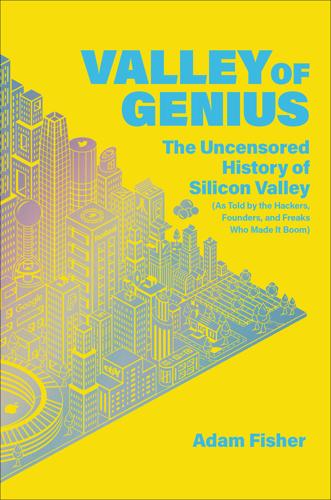
Valley of Genius: The Uncensored History of Silicon Valley (As Told by the Hackers, Founders, and Freaks Who Made It Boom)
by
Adam Fisher
Published 9 Jul 2018
Biz Stone was an art school dropout living in his mom’s basement when he discovered this weird new thing online called blogging. Stone’s own blog consisted of joke-filled accounts of his totally imaginary existence designing and building a new Japanese superjet, among other things. It was the fake-it-until-you-make-it philosophy, and it succeeded. Within a year Stone was working at Google. Within five years he, along with a few others, had created Twitter. Brad Stone is the one journalist who knows the most about Amazon, Airbnb, and Uber, because he wrote the book—two of them, in fact: The Upstarts: How Uber, Airbnb, and the Killer Companies of the New Silicon Valley Are Changing the World and The Everything Store: Jeff Bezos and the Age of Amazon.
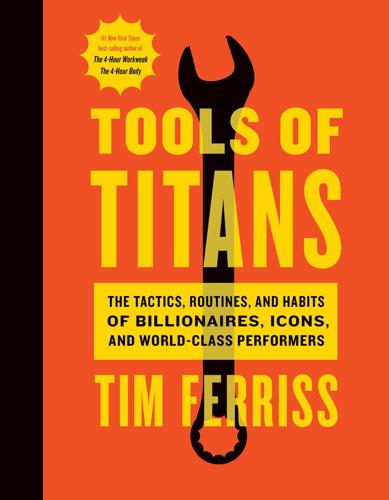
Tools of Titans: The Tactics, Routines, and Habits of Billionaires, Icons, and World-Class Performers
by
Timothy Ferriss
Published 6 Dec 2016
He captures 10 to 15 minutes total, and he never shoots for more than 2 minutes at a time. Two Approaches to Mood Elevation Shay explained to me how posting daily videos or “vlogging” (video + blogging) was cheap therapy: “Physiologically, I could feel my body was different. . . . Just by sitting up straight, putting a smile on my face, and faking it until you make it, you actually do feel better. There’s real power in this.” TF: This inspired me to experiment with short vlogging for roughly 15 days for mood elevation. I made it as simple as possible, using my iPhone for a 10-minute Facebook Live video Q&A. I uploaded the FB videos to YouTube, and it was incredible how quickly a large repeat viewership formed, something I’d never achieved before.